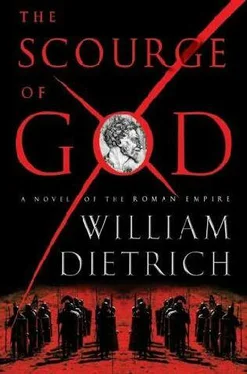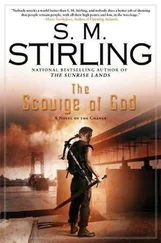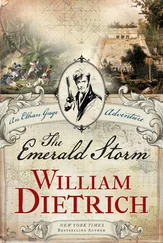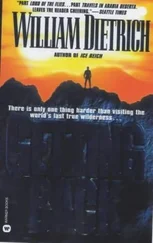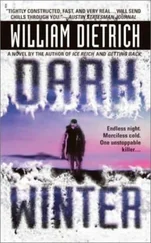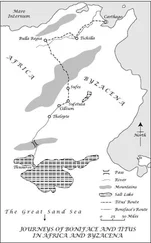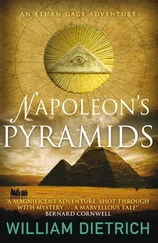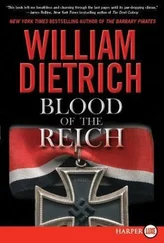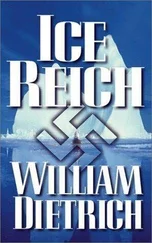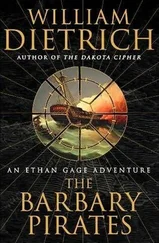William Dietrich - The Scourge of God
Здесь есть возможность читать онлайн «William Dietrich - The Scourge of God» весь текст электронной книги совершенно бесплатно (целиком полную версию без сокращений). В некоторых случаях можно слушать аудио, скачать через торрент в формате fb2 и присутствует краткое содержание. Жанр: Фэнтези, на английском языке. Описание произведения, (предисловие) а так же отзывы посетителей доступны на портале библиотеки ЛибКат.
- Название:The Scourge of God
- Автор:
- Жанр:
- Год:неизвестен
- ISBN:нет данных
- Рейтинг книги:5 / 5. Голосов: 1
-
Избранное:Добавить в избранное
- Отзывы:
-
Ваша оценка:
- 100
- 1
- 2
- 3
- 4
- 5
The Scourge of God: краткое содержание, описание и аннотация
Предлагаем к чтению аннотацию, описание, краткое содержание или предисловие (зависит от того, что написал сам автор книги «The Scourge of God»). Если вы не нашли необходимую информацию о книге — напишите в комментариях, мы постараемся отыскать её.
The Scourge of God — читать онлайн бесплатно полную книгу (весь текст) целиком
Ниже представлен текст книги, разбитый по страницам. Система сохранения места последней прочитанной страницы, позволяет с удобством читать онлайн бесплатно книгу «The Scourge of God», без необходимости каждый раз заново искать на чём Вы остановились. Поставьте закладку, и сможете в любой момент перейти на страницу, на которой закончили чтение.
Интервал:
Закладка:
Onegesh was more urbane, given his background, but left no doubt that he felt he had improved himself by trading the Roman world for this new barbaric one. Captured in battle, he had promptly defected. His choice astonished me, but he told me that he now ranked higher and had grown richer, besides learning he preferred the sky to a roof. “In the Empire, it’s all birth and patron, is it not? In Hunuguri, it’s ability and loyalty. I’d rather be free on the plains than a slave in a palace.”
“But you weren’t a slave.”
“To expectation? Everyone is, in Rome and Constantinople. Besides, I had no rich relatives to ransom me but only my own wits and ability. In the Roman army, I was ignored.
In Hunuguri, I’m listened to.”
Most irritating was the youngest Hun, a warrior named Skilla just a few years older than I. He had arguably the least rank of any of us and yet exemplified Hun pride. I sought him out the day I arrived and found him squatting by their fire, working on the fletching of an arrow and disdaining to even glance at me. I tried a formal but simple greeting.
“Good day to you, companion. I am Jonas, secretary to the senator.”
Skilla kept working on his arrow. “I know who you are.
You’re young to go with the graybeard.”
“As are you to go with your uncle. In my case it’s because I’m skilled with letters and know your language.”
“How do you know Hunnish?”
“I enjoy foreign tongues and Rusticius taught me yours.”
“Soon the whole world will speak the words of the People of the Dawn.”
Well, that seemed presumptuous. “Or we will live as neighbors and share Latin, Greek, and Hunnish together.
Isn’t that the point of this embassy?” Skilla sighted down the shaft of his arrow. “Is our language all that you know?” There seemed some secret meaning in the question, but I didn’t know what it was.
“I am schooled in many things, like classics and philosophy,” I said carefully.
The Hun looked up for a moment to study my face and then went back to his arrow, as if I’d revealed more than I intended to. “But not horses and weapons.”
This was annoying. “I’ve been trained with arms and animals but been educated in much more. I know music and poetry.”
“No use in war.”
“But of great use in love.” I’d wager he coupled like I’d seen the Huns eat: with too much speed, too little care, and a great belch afterward. “Have the Huns heard of love?”
“The Huns have heard of women, Roman, and I have one of my own without need for music and poetry.”
“You are married?”
“Not yet, but I have Attila’s promise.” He finished bind-ing his quill of feathers to the shaft and allowed a smile. “I have to teach her not to scratch.”
“It sounds like you need the book and lyre, not the bow and arrow.”
“The Hun use books to wipe our asses.”
“Because you can’t read and have no thoughts worth writing down.” Not the most diplomatic rejoinder, I know, but the man’s stubborn ignorance was dismaying.
“Yet you Romans pay tribute to us, the Hun.” That was true enough, and it was unclear how this embassy would change that. I finally walked away, wondering what would be accomplished.
V
We set out on horseback, the slaves and pack mules extending the total caravan to fifteen people and thirty animals. This was considered modest for an imperial embassy, but again, our mission was a quiet one. We would of necessity be camping. The Roman system of mansionis, or inns, located twenty miles apart, had been abandoned after the devastation of the recent wars, so we would set our own ambitious pace, averaging twenty-five miles per day. The Huns would have moved faster on their own, but our Roman baggage train, with its gifts and food, could not move faster.
“You travel so slowly that you need even more food and fodder, which makes you slower yet, and which requires yet more supplies. It is insane,” Edeco pronounced.
“We could leave the presents behind,” Maximinus said mildly.
“No, no,” the Hun muttered. “We will ride like Romans, and I will catch up on my sleep.”
It was late spring, the afternoons hot and the mornings cool; and the forests and meadows of Thrace were green and in high flower. Here, close to Constantinople, people had returned to their farms after the gallop of armies and there was a semblance of normality to the landscape. Cattle grazed, oxen plowed, grain was already high, and we would period-ically thread through flocks of sheep or gaggles of geese.
When we rode farther north and west, Maximinus warned me, the effect of the Hun raids would be more apparent.
“The country will become increasingly wild. Bears and wolves have returned to valleys they haven’t roamed in generations-and stranger things, too, it is claimed. We live in evil times.”
“I would like to see a wild bear.” I’d seen only chained ones in the arena.
“I’d like to see peace and resettled farmers.” While I had journeyed as far as Athens by sea, this kind of expedition was entirely new to me. I was unaccustomed to sleeping in a tent, being exposed to the weather, and riding my mare for so long at a time. The first days my thighs and butt were on fire; and while I stoically tried to hide my stiffness, I fooled no one. Yet I also felt a rare freedom. For most of my life my days had been carefully scheduled and my future plotted. Now my future was as open as the sky and horizon.
As the comforting walls of Constantinople fell behind, I studied the young Hun warrior who had taunted me. Skilla rode as if one with his horse like a centaur, his mount a bay gelding and his saddle made of wood and leather softened with sheep’s fat. His bow, like all those of the Huns, was that secret combination of wood, sinew, and bone, short but curved backward at the ends, that when pulled made them the terror of the world. Called reflex bows for the added power the bend gave them, they were short enough to be fired from a horse and yet uncannily accurate. The arrows could fly three hundred paces and kill easily at one hundred and fifty. The bow rode in a saddle holster to the Hun’s right, next to a whip to lash his pony’s flanks. A sword hung from a scabbard on his left, so it could be drawn horizontally by the right arm. A quiver of twenty arrows rode on the man’s back. On his saddle was a lariat, used by the barbarians to catch errant livestock and immobilize enemies so they could be enslaved. Unlike Edeco’s mail, purchased or stolen from some enemy, Skilla wore a light Asian cuirass of bony scales, cut from the hooves of dead horses and layered like the skin of a dragon or fish. While seeming dangerously light, it was also cool compared to Roman mail or breastplate. He had soft leather boots over his trousers and a con-ical wool cap he wore in the chill of the evening when we camped, but by day his head was often bare, his long black hair tied back like the tail of a horse. He was clean shaven and not yet ritually scarred like Edeco, and in fact boasted a somewhat noble and handsome look, his cheekbones high and his eyes black and shiny, like stones in a river. His cos-tume was by no means typical because there was no typical barbarian dress. Onegesh wore a strange mix of Roman clothes and Hunnish fur, and Edeco seemed a vain mix of all nations.
My own weaponry was mostly packed away. I had brought the full shirt of mail, helmet, shield, and heavy spear that I had used for the basic military training all men of my class received, as well as my new sword. But only the latter was kept at my side. The rest seemed too heavy for a peace party, so it was bundled on one of the animals. My mare, Diana, bore a padded Roman saddle that borrowed from Hun design, crowned front and back by wood ridges to hold me in place, my legs dangling free. I wore a fine woolen tunic of yellow with blue borders that I had purchased in the forum of Philadelphion, sturdy cavalry trousers, and a fine leather baldric studded with gold coins that held an ivory-handled dagger. A felt skullcap gave me some protection from the sun, and my cape was tied behind my saddle.
Читать дальшеИнтервал:
Закладка:
Похожие книги на «The Scourge of God»
Представляем Вашему вниманию похожие книги на «The Scourge of God» списком для выбора. Мы отобрали схожую по названию и смыслу литературу в надежде предоставить читателям больше вариантов отыскать новые, интересные, ещё непрочитанные произведения.
Обсуждение, отзывы о книге «The Scourge of God» и просто собственные мнения читателей. Оставьте ваши комментарии, напишите, что Вы думаете о произведении, его смысле или главных героях. Укажите что конкретно понравилось, а что нет, и почему Вы так считаете.
